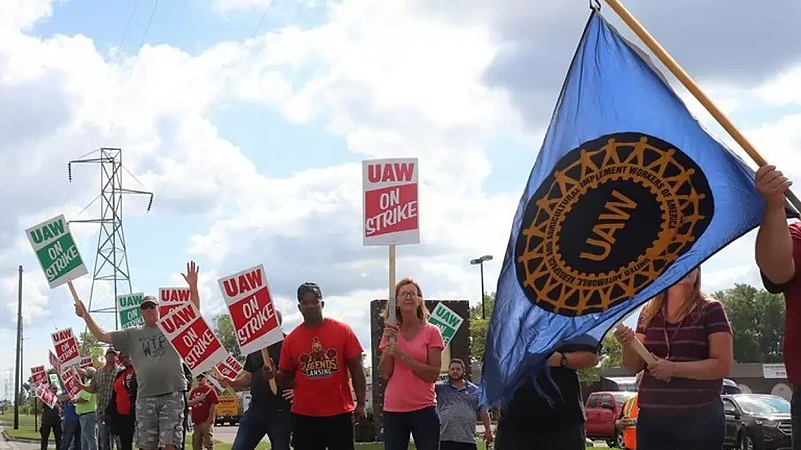Union Auto Workers (UAW) simultaneously went on strike at midnight, demanding their rights from auto giants Ford, General Motors, and Stellantis. The union represents 146,000 U.S. auto workers who are demanding a 40 percent pay raise through September 2027, along with improved benefits, working conditions, and job security. This demand has been called audacious. Union president Shawn Fein stated that this marks the first time in the union's 88-year history.
As negotiations continue, concerns are rising over the potential consequences for the industry, the workforce, and the American economy, depending on the strike's duration.
Production disruption
According to the U.S. Bureau of Labor Statistics, the U.S. auto sector employs nearly 1 million people. The anticipated consequences include disruptions in production. The UAW's strength cannot be underestimated, as it represents employees collectively from three auto giants and plays a crucial role in both labor and management.
Halting and delaying assembly lines will inevitably lead to production delays for vehicles and impact consumers. Furthermore, disruptions in the automobile industry's production processes will have a ripple effect on related industries.
Financial loss
The financial burden on car makers is unavoidable. The magnitude of the strike will result in higher labor costs. Additionally, it could tarnish the goodwill and credibility of the brands in the stock market. According to estimates from Deutsche Bank, a full strike could impact automakers' earnings by approximately $400 million to $500 million per week.
Ford Motor’s CEO expressed concern, stating that the demand for a 40 percent raise could "put us out of business." GM CEO Mary Barra encouraged employees to remain optimistic and referenced the unfruitful strike of 2019. Meanwhile, Stellantis has offered pay hikes of 17.5 percent.
While President Joe Biden's administration has presented itself as union-friendly, he is currently navigating the delicate balance between addressing the union’s concerns and safeguarding the economy. This unprecedented strike has the potential to significantly affect the economy, as the auto sector accounts for 3 percent of the U.S. GDP. The White House announced on Thursday that President Biden has spoken again with Shawn Fein and auto executives to stay abreast of the situation.


























